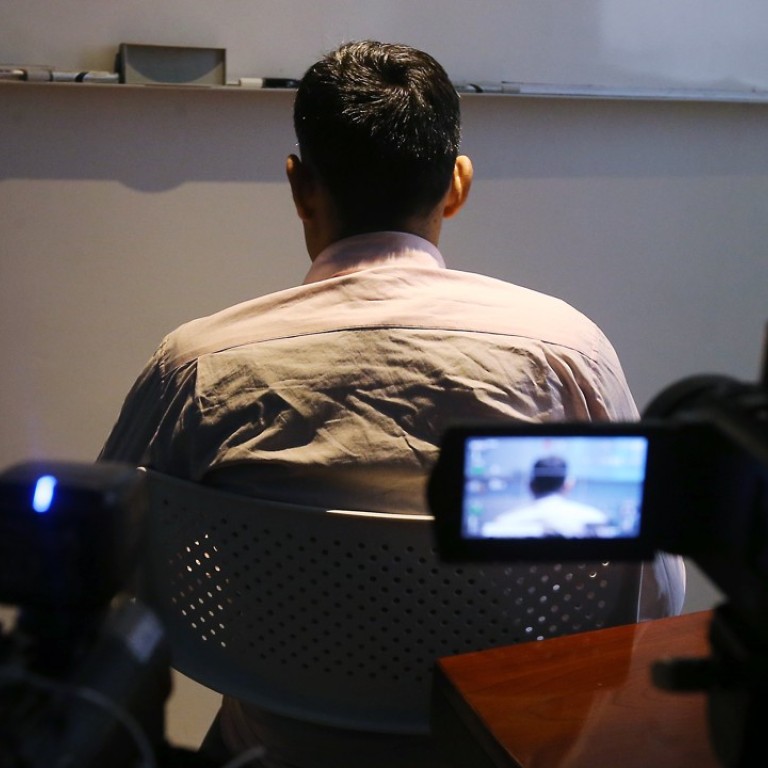
Hong Kong under no obligation to introduce specific criminal legislation against forced labour, David Pannick QC, defending government, tells High Court
Barrister also claimed man at centre of Hong Kong’s first ever judicial review on human trafficking was not a victim of forced labour
A top London barrister representing the Hong Kong government in an appeal case argued in court that the city’s administration had no obligation to introduce a specific offence criminalising forced labour.
David Pannick QC also claimed that the man at the centre of the city’s first ever judicial review on human trafficking was not a victim of forced labour because, despite having been threatened, he had worked “voluntarily” to earn a salary.
The appeal began at the High Court on Tuesday after a Pakistani man, who has been ruled to be a victim of human trafficking for forced labour, won a legal battle against local authorities.

The Southeast Asian man, who is being identified as Zn for legal reasons, had sued the Immigration Department, Hong Kong Police Force and the Labour Department for ignoring his claims that he was a victim of human trafficking in the city.
In December 2016, High Court judge Kevin Zervos ruled in his favour, noting that although Hong Kong had laws that prohibited certain acts related to human trafficking, the city did not have legislation specifically targeting the problem.
“If this case is an example of the effectiveness of Hong Kong’s regime in tackling human trafficking and forced labour, then it has failed to achieve even the most basic objectives,” Zervos said at the time.
The government lodged an appeal against the decision.
Judge criticises Hong Kong’s human trafficking regime after officials ignored forced labour victim
Presenting the government’s case, Pannick, who is a member of the House of Lords, argued that the local administration was “entitled to say that as a matter of law it had no legal obligation to address human trafficking per se”. He said the city’s administration took the issue “very seriously”, and measures on a policy level had been taken “to address this scourge”.
Referring to Zervos’ decision, the British barrister said: “We do not agree that the positive obligations require any specific legislation to criminalise forced labour or human trafficking.”
Local laws provide a narrow definition of human trafficking, which limit it to trafficking for the purpose of prostitution, and forced labour is not a crime in Hong Kong, a city that relies heavily on migrant workers.
Over the years, advocates have called for anti-human-trafficking laws to be put in place.
Pannick suggested that the matter could be tackled under the current laws, with appropriate guidance and training.

Referring to Zn’s case, he noted that the man had willingly come to Hong Kong and had continued working “voluntarily” because he thought he would be paid.
According to the Forced Labour Convention, “forced or compulsory labour” usually implies that a “person has not offered himself voluntarily”.
Pannick argued that Zn’s previous statements gave the impression that threats or ill-treatment were not the main reasons he had continued working.
Although the employer’s behaviour was “disgraceful”, that “does not make him a victim of forced labour”, the lawyer said.
The barrister noted that his submission was not focused on whether the court should believe Zn but on whether there had been sufficient evidence for police to investigate the case. In Pannick’s opinion, there had not.
Plug Hong Kong’s legal loopholes on human trafficking and forced labour, legislator tells officials
Pannick argued that the previous judge should not have criticised the authorities for not acting on a case that had happened three years earlier. Zn sought help from the authorities years after the employment in question.
Raza Husain QC, representing Zn, began his argument at the end of the day, arguing that the concept of “informed consent” had to be taken into consideration. He noted that victims in forced labour cases often had their “capacity for rational decision diminished”.
Husain added that “freedom to work cannot exist under threat”.
Zn worked in Hong Kong from 2007 to 2010 and then returned to the city in 2012 to seek justice. He said he had been subjected to beating, threats and long working hours without ever being paid.
“Is this a case [where it is] conceivable that he could give consent?” Husain asked.

